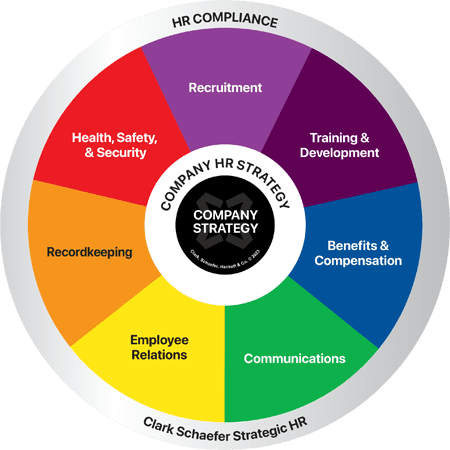FSLA – Update Notice
Last Updated on November 15, 2021 / HR Compliance
Question:
What is the final rule by the Department of Labor to the Fair Labor Standards Act regarding overtime pay?
Answer:
What happened with the last FLSA Rule?
As a reminder, this dated piece of legislation was updated and scheduled to go into effect December 2016. After much legal activity and postponements, it was never implemented, even after many employers made adjustments to comply.
What is the newest FLSA change?
In summary, the FLSA final rule increases the salary level for the “white-collar” exemptions, and it is scheduled to go into effect January 1, 2020. Here are the critical pieces you need to prepare for:
- The current required salary to pass the salary test for exempt status is $455 per week ($23,660 annually).
- The new required salary level for exemption will be $684 per week ($35,568 annually). You CAN use nondiscretionary bonuses and incentive payments to satisfy up to 10% of the required salary level. What that means is, for example, you can continue to classify your shift manager who is making $33,000 per year as exempt, as long as you provide nondiscretionary bonuses of at least $2,568, which would get them to the $35,568 requirement.
- Examples of non-discretionary bonuses could include attendance bonuses, individual or group production bonuses, bonuses for quality and accuracy of work, retention bonuses, and profitability bonuses.
- There is NO CHANGE to the duties test. Remember…there are 2 parts to the test to determine exemption – salary AND duties. Only the salary levels test is changing with this revision.
- The new level for highly compensated employees will be $107,432. Currently, it is $100,000.
If your current exempt employees don’t meet this new salary requirement, you will either need to take steps to ensure they do meet this requirement or they will need to be reclassified as non-exempt and eligible for overtime. For more details on this final rule, visit the DOL FLSA Update.
Do I really need to worry about the new FLSA rule again?
Bottom line, the updated revisions are different than those proposed in 2016, and they are scheduled to go into effect January 1, 2020. Similar to the last go around in 2016, it is best to prepare in advance for this change. Is it going to be repealed again? One never knows, but we need to be prepared regardless. The good news is that the final rule is not as severe as the 2016 recommended changes, so this change may not be as cumbersome for you to implement.
What should we do now to prepare for the FLSA final rule?
To prepare for FLSA’s final rule, look at your current properly classified exempt staff (those not receiving overtime) and review their current salary levels. If they are making more than $35,568 annually – you are good to go! If they are making less than that amount, review any nondiscretionary bonuses they may receive. Make sure those total no more than 10% of the required salary level to help push them up over the threshold. If it does not take them over the threshold, you will need to do one of two things: increase their salary to meet the minimum threshold or transition them to hourly status where they would be eligible for overtime.
Our best advice is to make sure that you have taken the steps to be prepared in advance before the new rule goes into effect.




